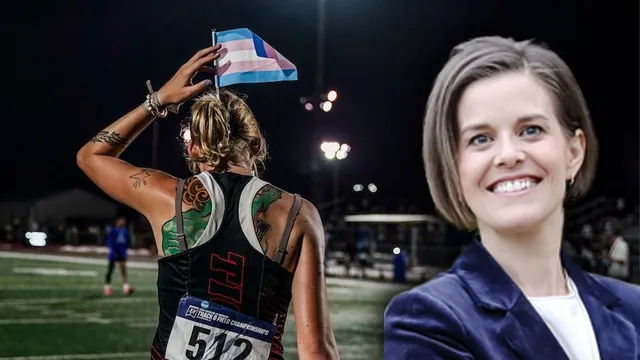
Maine officials defy Trump administration's transgender sports ban
2025-03-29 20:08- Maine school officials have chosen not to comply with a federal agreement aimed at barring transgender athletes from girls' sports.
- The refusal stems from the belief that compliance would violate the Maine Human Rights Act and state law.
- This defiance places Maine at risk of federal repercussions, including potential loss of funding and legal action.
Express your sentiment!
Insights
In Maine, school officials are facing federal scrutiny for their refusal to comply with a proposed Title IX compliance agreement that seeks to bar transgender athletes from participating in girls' sports. This decision follows a federal investigation launched by the U.S. Department of Health and Human Services, which found the Maine Department of Education, the Maine Principals' Association, and Greely High School in violation of Title IX due to the participation of transgender athletes. The controversy escalated after a transgender student won a girls' track competition, prompting the federal authorities to intervene and initiate an investigation. The officials, including those from the Maine Principals' Association and School Administrative District 51, announced they would not comply with the executive order put forth by President Donald Trump. They cited the Maine Human Rights Act as a reason for their defiance, stating that adhering to the proposed agreement would contradict state law. In a letter addressed to the community, the school district emphasized its commitment to state law and the principles outlined in the Maine Human Rights Act, expressing gratitude for the students' maturity during the ongoing controversy. The national attention on this issue ignited a public spat between President Trump and Maine's Democratic Governor Janet Mills, particularly after Trump's administration threatened to withdraw federal funding from the state over this disagreement. Mills stood firm, indicating that they would rather face legal battles than contravene state law. The deepening conflict suggests potential repercussions from the U.S. Department of Justice, as the state remains at odds with federal expectations regarding transgender participation in school athletics. Polling data indicates public sentiment in Maine may be shifting toward the administration's stance, with a significant portion of residents supporting a measure that limits participation in girls' sports to biological females. As the conversation around gender identity and sports continues, both state officials and federal authorities remain entrenched in their positions, indicating that this contentious debate could lead to further legal challenges and widespread discussions about equity and inclusion in athletics.
Contexts
Title IX serves as a critical piece of legislation that prohibits sex-based discrimination in federally funded education programs and activities. In recent years, the application of Title IX has expanded to include protections for transgender athletes, sparking significant debate and discussion in both educational institutions and athletic organizations. This report provides an overview of the current considerations surrounding Title IX compliance in relation to transgender athletes, addressing the complexities of gender identity in sports and the ongoing developments in policy and legal interpretations. Transgender athletes experience unique challenges concerning their participation in sports, primarily due to varying policies at the federal, state, and institutional levels. While Title IX prohibits discrimination on the basis of sex, the interpretation of "sex" has evolved to encompass gender identity, thereby permitting transgender individuals to compete in accordance with their affirmed gender. However, this has raised questions about fairness in competition, particularly pertaining to the physical advantages often associated with male-to-female transition in areas such as strength and endurance. Various governing bodies, including the NCAA and state athletic associations, have implemented eligibility criteria that aim to balance inclusion and competitive fairness, with a focus on hormone levels and the duration of hormone therapy as determinants for participation. Legal interpretations of Title IX are continually shaped by landmark court cases and regulatory changes. In 2020, the U.S. Supreme Court ruled in Bostock v. Clayton County that discrimination based on gender identity is a form of sex discrimination under Title VII of the Civil Rights Act. This decision has created a precedent that may extend to Title IX cases. Following this ruling, some educational institutions have begun to comply with the principles that would allow for broader access for transgender athletes, although disparities remain in how regulations are implemented across different jurisdictions. As educational institutions navigate these complex issues, they also face pressure from various stakeholders, including parents, students, and advocacy groups, to ensure equitable treatment for all athletes. In summary, the intersection of Title IX and the rights of transgender athletes is an evolving area of law and policy that requires careful consideration from educators, policymakers, and sports organizations. Continued dialogue is essential to develop fair and inclusive practices that respect the identities of transgender individuals while also addressing concerns about equity in sports. Moving forward, it will be crucial for institutions to remain agile and responsive to both legal developments and the social impact of their policies to foster an environment that champions not only fairness and competition but also respect for diverse identities in athletics.